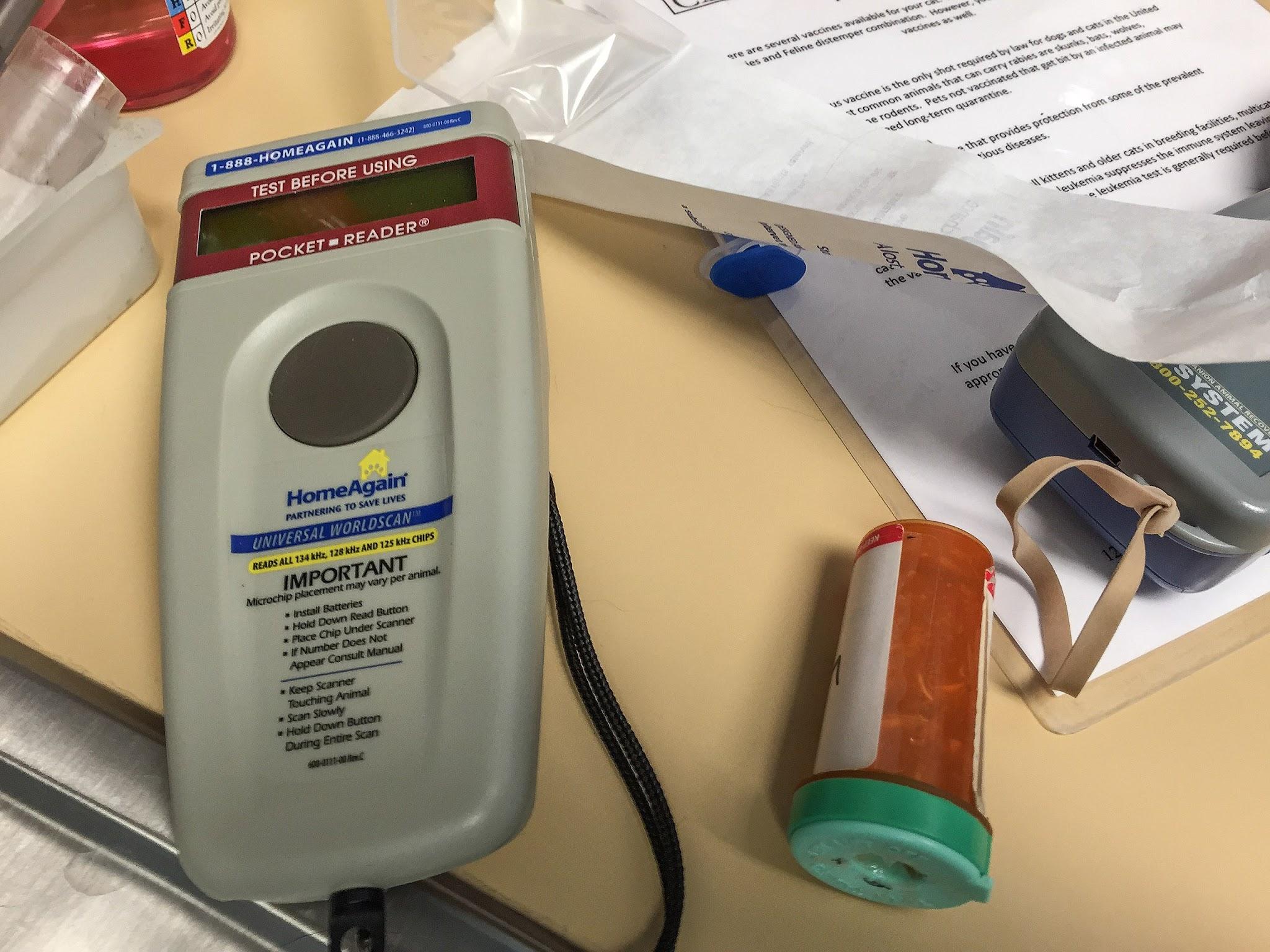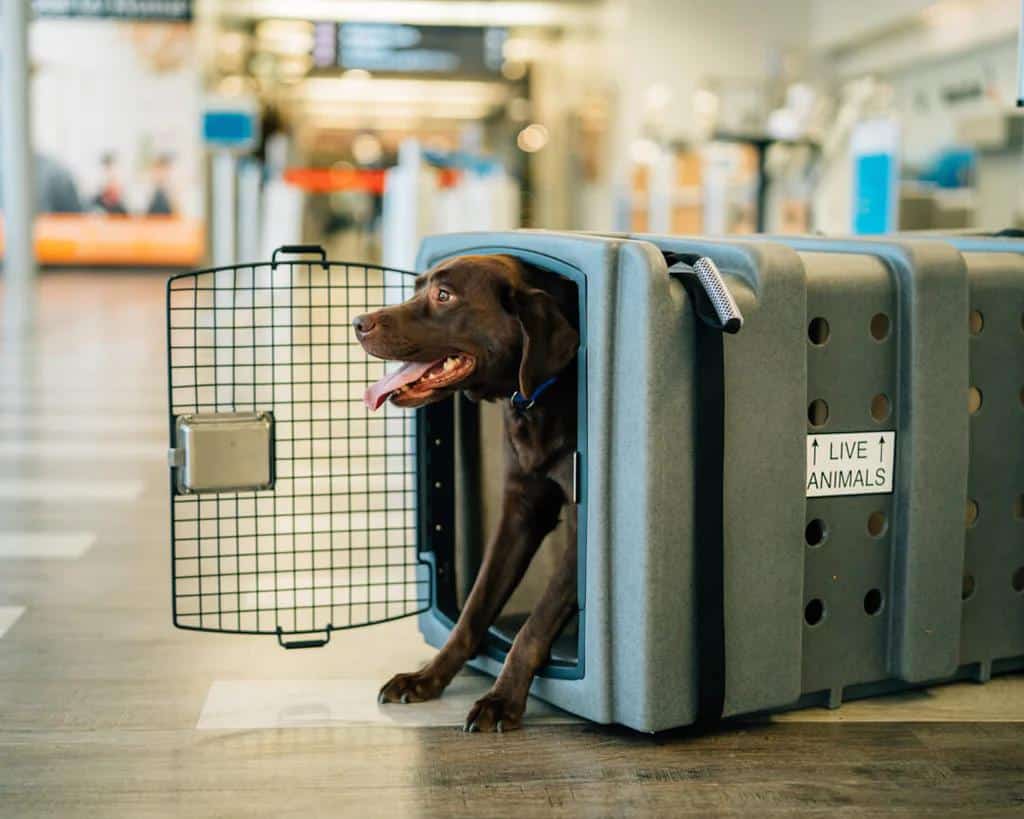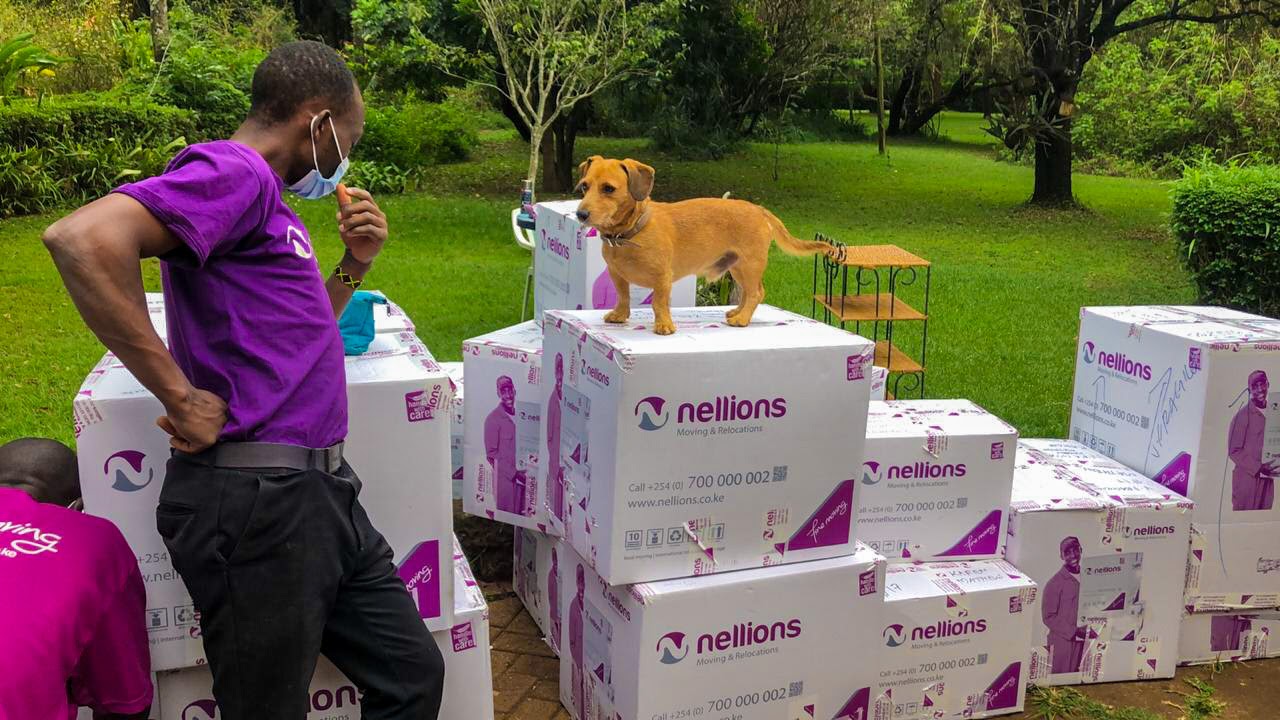Last updated on April 24th, 2024 at 10:00 am
Relocating a pet is a journey that goes beyond mere transportation; it’s a transition that demands careful consideration and meticulous planning, especially when it involves navigating the unique landscape of Kenya. Whether you’re moving to Kenya with your furry companion or planning an international journey for your pet, understanding the blend of local regulations and international best practices is crucial for a smooth and stress-free relocation.
In this checklist, we delve into the essential aspects of pet relocation in Kenya. From understanding the specific requirements set by the Kenyan authorities to choosing the right pet relocation company, we cover all the bases to ensure your pet’s journey is as comfortable and safe as possible.
By integrating insights from renowned international pet relocation authorities, this article offers a holistic view that balances global standards with local nuances.
Join us as we unfold the key steps, considerations, and tips for successfully relocating your pet to or within Kenya, ensuring that your beloved animal companion receives the best care and attention throughout this significant transition.
Kenyan Pet Importation and Exportation Requirements

Pet Microchipping
Kenya mandates that pets must be microchipped with a 15-digit, non-encrypted, ISO 11784/11785 compliant pet microchip.This is a critical step for the identification and tracking of your pet.
Non-ISO Compatible Microchips: If your pet’s microchip is not ISO compatible, it’s advisable to carry your own microchip scanner. This ensures that your pet can be properly identified at all times.
This condition may be waived for animals entering Kenya from rabies-free countries where the pet was born or has lived for a minimum of 6 months.
It is always advisable to bring some sort of identification showing your ownership if your pet travels to a foreign country like Kenya.
Rabies Vaccination
Pets entering Kenya must be vaccinated for rabies less than 6 months and not more than 12 months before arrival. This is a key requirement to prevent the spread of this dangerous disease.
If your pet was vaccinated against rabies less than six months before arriving, you’ll need a certificate from the country of origin’s Government Veterinary Officer. This certificate must confirm that no rabies cases occurred within 30 miles of your pet’s origin in the last six months.
Import Permits
An import permit from the Ministry of Livestock and Fisheries is required when entering Kenya with a personal pet. This permit is a crucial document that officially authorizes the entry of your pet into the country.
Health Certificate
If traveling from the United States or Canada, a USDA- or CFIA-certified veterinarian must complete a Veterinary Certificate for Kenya. This certificate then needs approval by the USDA or CFIA. For travelers from other countries, the certificate should be endorsed by the relevant governing body responsible for animal import and export.
Entry Regulations
Pets are typically expected to enter Kenya via air, arriving at Jomo Kenyatta International Airport as air cargo. For this, an IATA-compliant pet crate is necessary.
Upon arrival, pets must be free of signs of disease communicable to humans and may require further inspection by a licensed veterinarian at the owner’s expense.
Treatment of Contagious Diseases
Kenyan regulations require that the pet be clinically free of symptoms of any other contagious and infectious disease and internal and external parasites. This certificate should be dated not more than 48 hours before embarkation.
Choosing the Right Pet Relocation Company in Kenya

When it comes to relocating your beloved pet, selecting the right company is crucial for ensuring a safe and stress-free journey. Here are key factors to consider when choosing a pet relocation service in Kenya:
Experience and Reputation
- Track Record: Look for a company with a proven track record in pet relocation. Experience in handling various pet breeds and species is essential.
- Client Reviews: Check customer testimonials and reviews. A reputable company should have positive feedback from previous clients.
Compliance with International Standards
- Certifications: Ensure the company adheres to international pet relocation standards.
- Knowledge of Regulations: The company should be well-versed in both Kenyan and international pet travel regulations, including vaccination, quarantine, and documentation requirements.
Services Offered
- Comprehensive Services: Look for a company that offers end-to-end services, document processing, and travel crate provision.
- Customization: The company should be able to tailor their services to your pet’s specific needs, considering factors like age, health, and breed.
Safety and Comfort Measures
- Travel Crates: Ensure they provide IATA-compliant travel crates for safe and comfortable transportation.
- Pet Care: Inquire about the measures they take to ensure your pet’s comfort and safety during the journey, such as direct flights and climate-controlled environments.
Communication and Support
- Transparent Communication: A reliable company will maintain clear and regular communication with you throughout the relocation process.
Cost Transparency
- Clear Pricing: Ensure the company provides a clear breakdown of costs without hidden fees. Compare quotes from different providers to ensure you get value for your money.
- Local and Global Network
- Network: A company with a strong network in Kenya and globally can facilitate smoother transitions, especially for international relocations.
Special Considerations
- Special Needs: If your pet has special needs, ensure the company has the capability and experience to handle them appropriately.
- Breed-Specific Knowledge: Some breeds have specific requirements or restrictions; ensure that your pet relocation company of choice is knowledgeable about handling your pet.
Preparing Your Pet for Relocation

Relocating your pet, whether within Kenya or internationally, requires careful preparation to ensure their comfort and safety. Here are essential steps to prepare your pet for the relocation process:
1. Veterinary Check-ups and Vaccinations
Schedule a visit to the vet for a thorough health check-up. Ensure your pet is fit for travel and discuss any concerns with your veterinarian.
Update all necessary vaccinations. In Kenya, pets must be vaccinated for rabies more than 6 months and less than 12 months before entering the country. Check the specific vaccination requirements of your destination country as well
2. Travel Crate Selection
Select an IATA-compliant pet crate.It should be sturdy, well-ventilated, and secure. Include absorbent bedding and a familiar item, like a toy or blanket, to provide comfort.
Label the crate with your pet’s name, your contact information, and a photo of your pet. Also, clearly mark the crate with ‘Live Animal’ and ‘This Side Up’ stickers.
3. Acclimatization to Travel Conditions
Begin crate training well in advance. The crate should be spacious enough for your pet to stand, turn around, and lie down comfortably. Encourage your pet to spend time in the crate daily to build familiarity and reduce anxiety.
Gradually introduce your pet to the sounds and sensations of travel. This can include playing recordings of airport sounds or taking short drives in the crate.
4. Feeding and Medication
Maintain a consistent diet leading up to the move. Avoid feeding your pet right before the journey to prevent travel sickness. If your pet requires medication, ensure you have an adequate supply. Carry a copy of the prescription and dosage instructions.
5. Exercise and Calmness
Keep your pet’s exercise routine consistent. A well-exercised pet is likely to be calmer during travel.
Consider using pheromone sprays or stress-reducing products recommended by your vet to keep your pet calm.

When relocating your pet, their comfort and well-being during the journey are of utmost importance. A well-prepared comfort package can make a significant difference in ensuring a stress-free experience for your pet. Here’s what to include in your pet’s comfort package:
Pet Food
Pack sufficient food for the entire duration of the journey. It’s essential to maintain your pet’s regular diet to avoid any digestive issues. Pre-measure meals into individual bags or containers for convenience.
Pet First Aid Kit
A basic first aid kit should include items like bandages, antiseptic wipes, gauze, and tweezers. It’s also wise to include a digital thermometer and a small booklet on basic pet first-aid procedures.
Medications or Supplements
If your pet is on any medications or supplements, ensure you have enough for the journey and a few extra days. Keep these in their original containers with clear dosage instructions.
Motion Sickness Remedy
Pets, like humans, can experience motion sickness. Consult with your vet beforehand to get suitable motion sickness remedies. These can be in the form of tablets, chews, or even prescription medication if your pet is prone to severe motion sickness.
Emergency Contact Information: Vets & Vet Care Specialists
Prepare a list of emergency contacts, including your current vet, a vet in the destination area, and any pet care specialists. Include addresses, phone numbers, and any important medical history or notes about your pet.
Favorite Toy from Home
Bringing a familiar toy can provide comfort and a sense of security to your pet during the move. Choose a toy that your pet is particularly fond of and is safe for them to have unsupervised.
Additional Tips
- Water Supply: Ensure you have a portable water bowl and an adequate water supply for hydration.
- Comfortable Bedding: Include comfortable bedding in your pet’s crate or carrier for them to rest on.
- Familiar Scents: A piece of clothing or a blanket with familiar scents can also help soothe your pet.
By preparing this comfort package, you’re not just packing essentials; you’re providing a sense of familiarity and security for your pet, making their relocation experience as comfortable and stress-free as possible.
Special Considerations
 When relocating pets to Kenya, there are several special considerations and restrictions regarding certain breeds that pet owners must be aware of. Understanding these nuances is crucial for a smooth relocation process.
When relocating pets to Kenya, there are several special considerations and restrictions regarding certain breeds that pet owners must be aware of. Understanding these nuances is crucial for a smooth relocation process.
Young Pets
Unvaccinated puppies and kittens under three months old can enter Kenya. However, they must have proof of their mother’s rabies vaccination, provided she was vaccinated within 12 months of giving birth. This is particularly important for ensuring the young pets’ health and compliance with Kenyan regulations.
Health and Comfort
Ensuring the health and comfort of your pet during relocation is paramount. This includes acclimatizing them to their travel crate well in advance and ensuring they are in good health through vet check-ups. Pets facing a long journey may require special attention to their dietary and hydration needs.
Species-Specific Requirements
While dogs and cats are the most common pets relocated, owners of birds, reptiles, or other small mammals should be aware of specific requirements. These may include health certificates and, in some cases, permits, especially if the species is protected under CITES (the Convention on International Trade in Endangered Species of Wild Fauna and Flora).
Prohibited Breeds

Banned Breeds
As of the information available, Kenya does not publish a specific list of banned breeds. However, pet owners should consult with the Ministry of Livestock and Fisheries or a professional pet relocation service to confirm current regulations, as these can change.
CITES-Protected Animals
For pets that are not dogs, cats, or ferrets, such as turtles or parrots, it’s crucial to ensure they are not protected under CITES. If they are, additional permits will be required for their relocation.
Local Regulations
It’s also important to consider local regulations at your destination within Kenya. Some residential areas or housing complexes may have their own rules regarding pet breeds and sizes.
Other Animals
Birds, invertebrates, tropical fish, reptiles, amphibians, and small mammals such as mice and rabbits are exempt from rabies vaccine requirements.They may, however, be required to complete additional standards and obtain a health certificate in order to visit Kenya. We strongly urge pet owners to obtain additional information from Kenya’s Ministry of Agriculture, Livestock, Fisheries, and Co-operatives.
Exporting a Pet from Kenya: Research and Compliance
When planning to export a pet from Kenya to another country, it’s crucial to research and understand the pet-friendliness of your destination country and its specific pet regulations. This knowledge is vital for ensuring a smooth and stress-free relocation for both you and your pet.
Researching the Pet-Friendliness of the Destination Country
Cultural Attitudes Towards Pets
Investigate the general cultural attitude towards pets in the destination country. This includes understanding how pets are viewed in society, which can affect everything from housing options to public facilities that accommodate pets.
Pet-Friendly Housing and Neighborhoods
Look into housing options and neighborhoods that are pet-friendly. This includes checking for any breed or size restrictions in residential areas and the availability of pet-friendly amenities like parks, veterinary services, and pet stores.
Availability of Pet Services
Research the availability and quality of pet services such as veterinary care, pet sitting, grooming, and boarding facilities. The ease of accessing these services is a good indicator of the country’s pet-friendliness.
Researching Specific Pet Regulations in Your Destination Country
Import Requirements and Quarantine Rules
Each country has its own set of import requirements for pets, including health and vaccination standards. Some countries may require a period of quarantine for pets upon arrival, so it’s important to be prepared for this possibility.
Documentation and Health Certificates
Find out the specific documentation required for pet importation. This typically includes a health certificate from a licensed veterinarian and proof of vaccinations, especially against rabies.
Breed-Specific Legislation
Be aware of any breed-specific legislation in your destination country. Some countries have restrictions or bans on certain breeds, which could affect your ability to bring your pet.
Transportation Regulations
Look into the regulations regarding pet transportation in your destination country. This includes airline policies for pet travel, as well as local transportation rules for pets.
CITES Regulations
If your pet is a species protected under CITES, additional permits and documentation will be required. Ensure compliance with these international regulations to avoid legal complications.
Conclusion
Embarking on a pet relocation journey, especially in the diverse landscape of Kenya, is a significant undertaking that requires more than just logistical planning. It’s about ensuring the well-being and comfort of your beloved companion during a major life transition.
This checklist has aimed to equip you with the knowledge and tools to navigate this process with confidence and ease. Remember, the key to a successful pet relocation lies in meticulous preparation, understanding both local and international regulations, and partnering with a reliable pet relocation company.
By doing so, you’re not just moving a pet; you’re ensuring a seamless, stress-free transition for a cherished member of your family. As you embark on this journey, keep in mind that every step taken is a stride towards a new, exciting chapter for both you and your pet.








